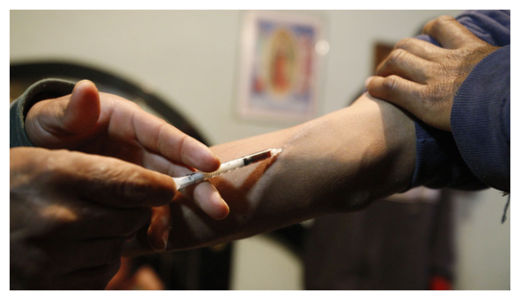
The work in finding the underlying molecular process by which opiate addiction develops in the brain was carried out by scientists at the University of Western Ontario in London, Ont.
Opiate addiction is largely controlled by the formation of powerful reward memories that link the pleasurable effects of opiates to environmental triggers, reinforcing dependence and relapse.
The team led by Dr. Steven Laviolette was able to identify how exposure to heroin induces a specific switch in a memory molecule in the basolateral amygdala.
During the early stages of opiate exposure, there is a specific molecular pathway in the amygdala that is responsible for the formation of those reward memories. The scientists call it the ERK (extracellular signal-related kinase) pathway.
After chronic exposure to the drug, the scientists saw a switch in the amygdala to a new system or pathway, controlled by a molecule called calmodulin-dependent kinase II, or CaMKII.
The research, using lab rats, may help researchers eventually develop drugs for humans that target these pathways, Laviolette said.
"By targeting these pathways with these novel compounds, the ultimate goal would be to either develop a way to prevent the formation of these very powerful opiate-addiction memories in the first place, or target this molecule that is switched on in the dependant state.
"And by targeting that system, we might be able to reverse the effects of chronic opiate exposure and opiate dependence within this brain pathway and essentially switch the brain back into sort of a non-addictive state," Laviolette said.
He said the ultimate goal of the research would be to one day help treat the heroin addict in relapse.
The research was published in Wednesday's issue of The Journal of Neuroscience.



Reader Comments
to our Newsletter